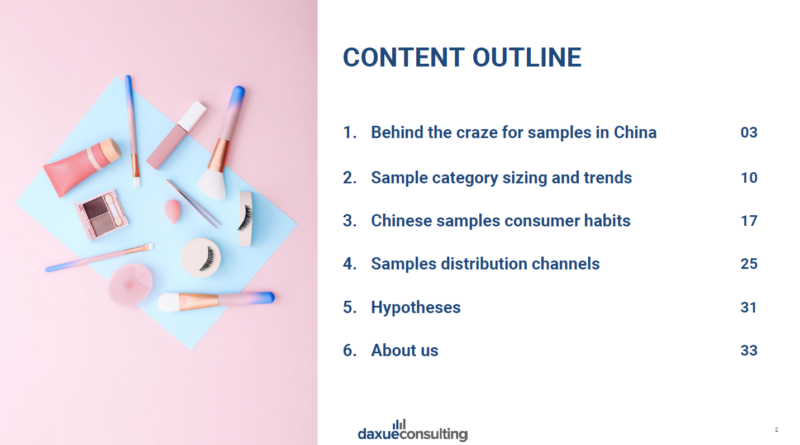Foreign-owned companies can now direct clinical operations and open 100% foreign owned hospitals in some Chinese cities. On September 7th 2024, China’s Ministry of Commerce, National Health Commission and the National Medical Products Administration announced the opening up the medical sector and, in particular, medical innovation to international players. As of this date, foreign-owned healthcare companies in China are now allowed to:
- Direct clinical operation of gene and cell therapies, as well as genetic diagnostics, for regulatory registration purposes (NMPA), in the special economic zones of the three major coastal cities (Beijing, Shanghai, Guangzhou) and on the island of Hainan;
- The opening of 100% foreign-owned hospitals in China (excluding traditional Chinese medicine and the acquisition of a public hospital) in Beijing, Tianjin, Shanghai, Nanjing, Fuzhou, Suzhou, Guangzhou, Shenzhen, and Hainan Island.
Download our China’s samples economy report

What do these policy changes mean for foreign healthcare companies in China?
In a way, this announcement resonates as a counterpoint to the policy VBP (Volume Based Procurement), deployed in 2020. This policy aims to achieve a lower price of medical care through high-volume procurement. While its intentions are logical and laudable in macro-economic terms, it demonstrated during the system’s implementation that it is sometimes counter-productive on the innovation front. Indeed, in many cases, the economic equation for innovative products on the Chinese market can prove untenable for foreign innovators, with purchasers preferring so-called “museum” products in the VBP context.
This announcement therefore illustrates the Chinese government’s recognition of this situation, and its ongoing determination to attract innovation in health products and services, under economic conditions that are once again attractive to innovative healthcare companies in China.
In concrete terms, after the major efforts made in the post-Covid period to digitalize the patient pathway (to an extent already ahead of many Western countries), the aim is to continue to advancing the entire medical industry:
- In terms of healthcare provision, the procedures for purchasing from public hospitals and validating the level of reimbursement by the Chinese social security system often delay the deployment of new therapeutic and diagnostic approaches by several months or even years.
- In hospital management, to avoid the wasteful practices that still exist at various levels of hospital administration.
- In terms of patient satisfaction, as the measured levels of satisfaction with public hospitals in China still leave much to be desired.
Moreover, as is customary with the Chinese government, the decision is multifactorial. Thus, the positive consequences of this announcement for the country, its population, and the general environment of the healthcare industry are numerous.
How the opening of China’s medical industry benefits patients
- Mobilize savings from the middle and upper classes towards the real economy, at around 45% in 2021, China’s savings rate significantly surpasses the global average savings rate of 26.5%. China bets here that wealthy Chinese will allocate an ever-increasing share of their family budget to healthcare, as can already be seen in existing international hospitals, where Chinese patients are by far in the majority compared to foreign patients – which was not the case just ten years ago.
- Accelerate the growth of the private medical insurance sector, in terms of both volume and actuarial skills, in order to continue to control public health spending and develop a whole area of financial services that is currently immature compared to the major Western countries. Notably, the situation in this field has already been improving for several years, thanks in part to innovative public-private partnerships.
China’s healthcare professionals benefit from the entry of foreign-owned healthcare
- Providing new career opportunities for the strictly “medical” staff of the public hospital, private hospitals in China are known and recognized for paying better salaries and offering better working conditions.
- Continue the process of specializing public hospitals in translational and clinical research (many large public hospitals are affiliated to a university with a medical curriculum), by increasing funding for physician-researchers and multiplying the number of world-class clinical trial centers – a trend already underway since 2018.
- The aim is to create an incentive for young Chinese to enter the medical and medical-scientific professions, by restoring the attractiveness they have lost in recent years due to the imbalance between pay and workload and the “glass ceiling” that has been reached too quickly.
How China’s healthcare opening boosts innovation
- Promote medical innovation, by facilitating the rapid market entry of innovative drugs and medical/diagnostic devices via private hospitals: these are not subject to the strict rules of public tenders (VBP or others), and therefore purchase their healthcare products at more or less “international” prices. With the combined population of the above-mentioned cities and their immediate surroundings exceeding 150 million, there is little doubt that such a market will prove profitable;
- Encourage the emergence of specialized medical distributors in the private hospital channel: as this type of distributor is still relatively rare, it is highly likely that new, high-caliber players will emerge in the next few years. This will enable innovative healthcare products to penetrate the Chinese market via multiple channels, with accelerated profits from the “private” channel supporting gradual entry into the “public” channel.
What is the next step for foreign health and medical tech companies to enter China?






